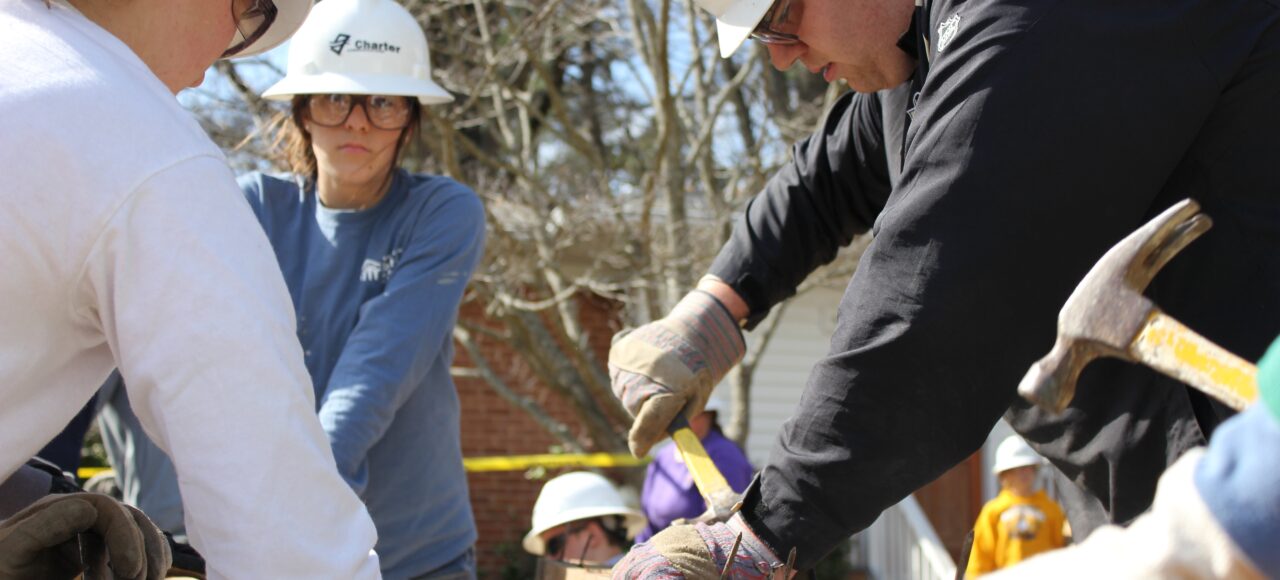
Improving Your Non-Profit
Running a non-profit is hard work. Many devise a brilliant idea to help their community but stall on the logistics. You need to know how to find money, maintain a budget, and keep your team on track to succeed. Truly, one of the biggest issues non-profits run into is financial. Simply, there isn’t enough money to pay staff, continue projects, and keep the lights on.
Unlike typical businesses, non-profits need a different revenue stream to stay afloat. Grants and donations make up the bulk of income. Indeed, up to 70% are funded by individual donors. You can also bring in money by selling goods (including donations) and services.
However, sometimes charging a fee goes against a non-profit’s goals. For example, if an organization plans on providing shelter and food to their city’s unhoused, charging a nightly fee makes little sense. Non-profit owners must find another way to bring in money. But the question remains: how do you find those funds? If it were easy, more non-profits would succeed.
Below we will go over some of the skills every non-profit owner should have to improve their business.
Top 7 Skills to Build for Your Non-Profit
While there is no one way to find money, you should invest in yourself to succeed. Notably, each skill below will help make you a better entrepreneur. Even better, many of them can be learned from home and even for free.
A course or program will help you improve faster and help avoid more mistakes. Additionally, grant writing and finances can be tricky to learn. Thus, learning from the pros is worth the cost. Additional resources like Udemy, YouTube, and specialized blogs make learning and sharing skills easier.
1. Soft Skills
Many articles or blogs may have used “soft skills” lately. Indeed, soft skills have gained much attention recently as employers look to improve their hiring processes. These abilities are less related to specialized schooling and training.
Some soft skills that will benefit your organization include communication, adaptability, and general writing abilities. Consider how much time you’ll spend talking to people at your non-profit. You’ll regularly communicate with donors, employees, and the community. Thus, you need to know how to speak clearly and professionally. If the community is confused about what you offer, they’re less likely to reach out.
Additionally, donors like investing in non-profits they can trust. If your website and emails are filled with typos, grammar errors, and generally confusing language, they won’t want to put their money into your business. Often, people equate poor writing with not caring. Regardless of your goals, no one will invest if they don’t think you care about your own non-profit.
How to Improve
Communication skills can be learned in and out of the classroom. Utilize YouTube videos for tips on improving your speaking and writing abilities. Additionally, you need to practice. Soft skills are built by experience and repetition. Furthermore, you can consider auditing or enrolling in an English composition or a communications course.
If you’re looking for legitimate college credit, enroll in an accredited school. Indeed, sites like Udemy offer certification courses that other universities or employers rarely accept. However, that doesn’t make the classes useless. These courses provide valuable knowledge for a fraction of the cost. If you only want to improve your skills, don’t be afraid of unaccredited classes. Do your research and avoid diploma mills by using proven sites.
2. Grant Writing
Grant writing skills are vital to finding funds for projects and programs. However, for many new non-profits, a full-time grant writer is out of budget. You can choose to hire a part-time or contract writer. Or you can build those skills for yourself. As a bonus, you can help other local non-profits and make some extra money.
Indeed, the grant writing process is difficult and time-consuming. It takes training to know the language, research, and steps for success. Consider that even experienced writers only have a 30-40% success rate when applying for new grants.
Non-profits rely on grants to fund their projects and programs. Thus, to expand your reach and help more people, you’ll likely need a strong grant writer in your corner.
How to Improve
Like soft skills, you can improve your grant writing skills on YouTube or through unaccredited courses. We recommend enrolling in a program that provides feedback through instructor and, ideally, additional peer review. Indeed, you need to know what you’re doing write when learning this process.
Additionally, many colleges offer grant writing programs to provide the skills needed for success. These courses may span as few as 16 weeks or up to a year of training. You may also find that some universities offer multi-level programs. For example, there are beginner and expert level courses. There are also specialized classes that may focus on federal or educational grants. It’s up to you to decide the best option for your non-profit.

3. Research
Research skills are vital for grant writing and general success. For example, you should know about similar non-profits in your area and how other non-profits have found success. You likely have seen posts about businesses finding success through viral marketing. This method is often not realistic or effective today. Instead, you should find tried and true methods from other professionals.
Additionally, you might find that a local business already offers the services you want to provide. You might need to decide at that point to either rethink your plans or consider if you’re going to take on the competition. Perhaps you may even join their non-profit somehow.
How to Improve
Research skills are one of the top abilities you learn in college. Indeed, it can be difficult to figure out on your own. Essays push you to look for sources to back up any claims you want to make. You also lose points for citing improper articles. In the real world, you often won’t cite specific books or articles to support your arguments. You’ll also be on your own to determine whether you can trust a source or not.
Additionally, most universities offer writing and library services that help you identify good sources. As you move through college, you’ll learn to see the signs on your own.
Of course, it’s not impossible to learn research skills outside of school – it just takes more effort. Try searching online resources for hints and tips. Some colleges have guides posted on their websites for their students.
4. Marketing
Some individuals don’t consider that you need to market your non-profit just like any other business. Being helpful doesn’t mean people will show up at your door. For programs to succeed, you need to market to your community. Let them know what you can do for people.
Depending on your non-profit’s reach, you may choose to utilize a variety of marketing methods. If you’re staying local, consider the best places to reach the public. Setting up a stall somewhere in your neighborhood might be more effective than social media. Additionally, consider your customer base. Marketing to underprivileged families requires different methods than marketing to the elderly. Basically, you need to know your demographics.
Beyond techniques, you must also know how to speak to your specific base. Again, you will not use the same language to market to your community’s elderly population as you would Gen-Z. Consider what might be interesting, needed, and offensive.
In the end, you need to get your name out there to be effective. Many non-profits fail to reach their target audience quickly because of marketing issues.
How to Improve
Much of marketing is trial-and-error. There’s a reason businesses spend thousands to millions each year on marketing firms. Despite the adage, not all publicity is good publicity. Indeed, if you hurt your reputation through bad advertising, it could mean doom for your non-profit.
As with the prior skills, college courses in marketing can help you avoid the more common mistakes. Additionally, try looking at both successful and unsuccessful ads for non-profits. You may be surprised at what has and hasn’t worked. There are some marketing efforts that you can rely on in addition to creative ones. You may be inspired by what you find.
Alternatively, marketing isn’t for everyone – especially if you’re trying to reach a different demographic than your own. In that case, you have a few options. You can hire a marketing firm or assistant. You may also find someone to run your social media campaigns.
Basically, you have many options when it comes to marketing. However, if you don’t have the budget, you should ensure you have the skills to do it right.
5. Networking for Your Non-Profit
Having a strong network can help you in a variety of ways. For example, consider the access to possible donors, connections for your projects, and guaranteed audience for your marketing. Other professionals will post resources and information to help you build your knowledge and skills. Truly, both you and your non-profit benefit from your network.
Consider the types of projects your business may do over the years. Helping the community may mean providing food, internet, housing, or clothes. Alternatively, you might want to provide transportation, health resources, or toys for children. As you work with your community, you’ll find what other needs they have and how you can help. For example, your goal to provide toys to underprivileged children may lead you to build or fix a local park. Or you might want to move into education.
Pre-existing connections in these different areas allow you to seek help and resources. Additionally, you’ll have an expert who can help you learn the ins and outs of the field. You can turn a connection into a partner who will help your community.
How to Improve
Today, networking happens mainly online. This change makes the process a whole lot easier. Indeed, even the most introverted of people can make a connection using websites like LinkedIn. Make an account, list your goals and business, and create content. Once you’re established, start adding relevant connections.
Notably, you shouldn’t go about messaging every person you add unless you have something to say. Direct messages that simply say “hi” aren’t considered professional. Consider interacting by posting your marketing information, valuable content, and through your connection’s posts.
Furthermore, you can meet people in other professional spaces such as webinars and networking events. If you’re still in school, try to attend a few events and network with your peers. Your college years are the greatest opportunity to meet people in various industries. Additionally, if your non-profit throws any events, ensure your business cards are readily available and that you talk to attendees. You never know who may show up.

6. Budgeting
As we mentioned previously, one of the biggest reasons non-profits struggle is their finances. All the above skills help you earn funds and consumers for your business. However, that’s only half the battle. You can easily go into debt regardless of how much you bring in.
Another big issue non-profits face is that their plans are too lofty for their income. Indeed, when you’re helping the community, it makes sense you’ll want to go all out to help. But you won’t be able to help anyone if your non-profit goes under. A huge part of successful budgeting in the non-profit sphere is in planning. You need to know how to manage your projects, staff, and all the fees that come with running a business. Your non-profit must be sustainable to be successful.
Truly, if you take too much on, your business may just fall apart. When just starting, stick to one project, even if you have a hundred others in mind. Otherwise, you may stretch your staff too thin and your resources too far. Consider what happens if you overload your employees but can’t afford to bring someone new in. Notably, being overworked is among the top reasons people quit their jobs. When that project is closing up or makes enough money to pay for itself, then you can consider expanding.
Indeed, you need to consider your funding sources. Grants and donations are limited and not guaranteed. You may have one amazing month of charity and successful grant proposals followed by three that barely allow you to keep your doors open. Thus, knowing how much to save is a must.
How to Improve
Truly, if you plan on running your finances without the help of an accountant, ensure you know what you’re doing. Above all else, you should improve your financial literacy to help your non-profit. Of the businesses that fail each year, up to 82% cite finances as the reason they closed their doors.
Indeed, this is one skill you will likely prefer to learn without trial and error. Every company and person will probably make many bad investments in their lifetime. But you can learn from other people’s mistakes through classes, blogs, and more. Thankfully, you can find many individuals on YouTube who speak of their experiences for no cost. We recommend investing in entrepreneurship-focused classes if you’re starting your own non-profit.
7. Realistic Goal Setting
On top of financial planning, you should know how to set realistic goals. Lofty plans are an issue in the world of non-profits. It can be easy to get carried away when you’re looking to help your community. Running a non-profit is expensive, and each new idea you have will cost money. You need to consider staff, event costs such as food, resources, and just keeping your lights on. Also, remember to add marketing, transportation, and professional accounts into your monthly fees. And on top of it all, you must bring home enough money to fund your own life.
Thus, start small. Anything you can do for your community is more than if you offered nothing. Providing transportation to the elderly can be life-changing for many trapped at home. You’ll get the opportunity to do more as you bring in money.
How to Improve
There are a variety of crash courses out there on realistic goal setting. You can also buy self-help and planning books. The best way to avoid getting too lofty is to get it all down on paper: your end goal, how you’ll reach it, what you need, and what it’ll cost. If it all stays in your head, it can be hard to prepare or take the first step.
This process will also reveal how much money everything will cost. Thus, it’ll help you remove any add-ons you can’t afford immediately. It may even assist you with coming up with new and creative ideas.
Final Thoughts for Improving Your Non-Profit
Turning your idea into reality takes time and effort. You should invest in yourself so that you can succeed. If running a non-profit was easy, everyone would do it.
Thankfully, many skills you need can be learned online, with books, or through a college class. Whether you’re just starting or looking to improve your non-profit, consider taking the time to improve your skills. In the end, you’ll be able to reach more people or enhance the services you already offer.




